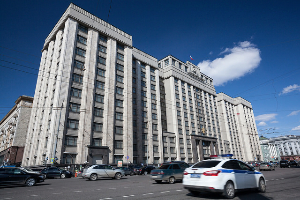Afghan Hazaras Organize to Defend Themselves
By Sudha Ramachandran
August 26, 2021, the CACI Analyst
Relentless violence against Afghanistan’s Shia Hazara community by the Sunni extremist Taliban and the Islamic State-Khorasan in recent years had prompted some of their youth to pick up arms to defend their community. Their fears have intensified with the Taliban coming to power. Recent attacks have heightened their sense of insecurity. Should violence against them persist, Hazara militias will proliferate. The Fatemiyoun Brigade, which is lying low, could be activated. Shia Iran could intervene to support the Hazaras.

Bishkek and Tashkent Face Uneasy Relations
By Arslan Sabyrbekov (06/24/2015 issue of the CACI Analyst)
On June 10, Kyrgyzstan marked the fifth anniversary of the tragic inter-ethnic violence that claimed more than 400 lives, displaced tens of thousands of people and destroyed thousands of households. In the aftermath of the bloody events, the President of neighboring Uzbekistan, Islam Karimov, issued a statement that third forces provoked the clashes between Kyrgyz and Uzbeks, and the Kyrgyz leadership agreed. However, recent developments indicate that Karimov’s position vis-à-vis the authorities in Bishkek and the conflict has changed into a more confrontational stance.
Karimov’s changing mood became apparent after his remarks to his Kyrgyz counterpart at the informal summit of the CIS states held in Moscow on May 8, in connection with the celebration of the 70th anniversary of the victory against Nazi Germany. At the summit, Kyrgyzstan’s President Almazbek Atambayev stated that, “It is of course sad that not everybody could make it to this summit because, to some extent, it is a tribute and respect for fathers and grandfathers, mothers and grandmothers who were in the war. I think that this day should remain in the memory of all countries because the future will punish those who forget the past.”
In response to this statement, the Uzbek President said that every democratically elected leader is in a position to decide what to celebrate and where, and no one has the right to force his opinion on others. Karimov continued by referring to his Kyrgyz colleague as simply “Almaz” and described his statements as incorrect and tactless. Atambayev interfered, stating that he was simply expressing his opinion, but Karimov ironically interrupted him by saying, “We all know your opinion already.”
Nevertheless, during his bilateral talks with the United Nations’ Secretary General Ban Ki-moon, Karimov described the June 2010 events in southern Kyrgyzstan as a full-scale war. “Power holders in Kyrgyzstan did not draw any conclusions. The causes of the conflict need to be investigated at an international level,” Karimov noted, despite the fact that the inter-ethnic clashes were investigated by a national as well as an international commission led by the Organization for Security and Cooperation in Europe. This is in stark contrast to the Andijan massacre of 2005, which were never evaluated either by national or international commissions.
Yet Karimov touched on a weak spot by pointing to Kyrgyzstan’s failure to bring the perpetrators to justice. Well-respected international human rights organizations have also called on the Kyrgyz authorities to retry all those convicted following the June 2010 inter-ethnic clashes, a trial that according to them saw ethnic Uzbeks sentenced at a higher proportion that then their Kyrgyz counterparts. Such a retrial would involve the case of the human rights defender and ethnic Uzbek Azimjan Askarov, sentenced to life for organizing mass disturbances and instigating inter-ethnic violence in southern Kyrgyzstan in 2010. According to Rachel Denber of Human Rights Watch, “In the case of Azimjan Askarov, the Kyrgyz justice system has utterly failed to deliver justice. The case was riddled with blatant flaws from start to finish, and it is astounding that the court did not order a thorough investigation into the way it was conducted.”
In general, Bishkek-Tashkent relations have always been uneasy. The two countries have been divided not only over the ethnic clashes between Uzbeks and Kyrgyz in southern Kyrgyzstan, but also on numerous border conflicts and the constant struggle for water resources. According to local political analysts, Karimov’s increasingly critical statements addressed to Bishkek might be guided by geopolitical interests. In a number of interviews, Uzbekistan’s president has stated that Tashkent will not enter the Eurasian Economic Union, the Customs Union or any other alliance that is reminiscent of the Soviet Union, unlike Bishkek, which is pursuing the opposite foreign policy.
Also, earlier this year Kyrgyzstan approved the sale of its gas network to Russia’s Gazprom for the symbolic price of US$ 1 and is now receiving its energy supplies without any delay. This has removed Tashkent’s leverage, which it has previously deployed to bully Bishkek by cutting off supplies during winter. Such developments, along with Bishkek re-equipping its military with the Kremlin’s assistance might are indeed irritants to power holders in Tashkent.
Russia's Unification Strategy Will Raise Tensions With Minority Regions
By Valeriy Dzutsev (08/05/2014 issue of the CACI Analyst)
The issue of minority languages in Russia is becoming an important issue in relations between the Russia’s central government and regions. As the government in Moscow seeks to unify the country through the suppression of all other ethnic identities apart from ethnic Russian, it faces resistance from regional nationalisms. Cultural symbols, such as monuments, are also at play as minorities often reject the ethnic Russian heroes that conquered them. Moscow’s attempt to press ahead with Russification of the diverse country indicates the government’s inability to present an attractive modernization project that would include all ethnic groups. The aggressive assimilationist stance of the Russian government toward ethnic minorities signifies the rising distrust.





 Silk Road Paper S. Frederick Starr,
Silk Road Paper S. Frederick Starr,  Book Svante E. Cornell, ed., "
Book Svante E. Cornell, ed., "